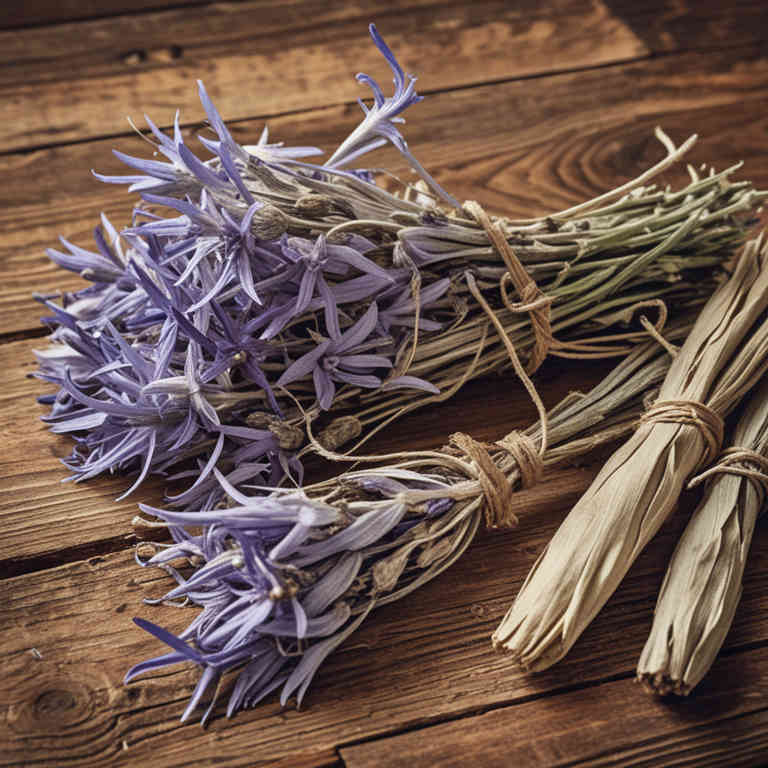Cichorium intybus mucillage for medicinal use

Cichorium intybus mucillage is a viscous substance derived from the roots of the chicory plant.
It is rich in mucilage, a type of polysaccharide that has soothing and demulcent properties. In herbalism, this preparation is used to calm irritated mucous membranes in the digestive and respiratory tracts. It is commonly employed to treat conditions such as gastritis, ulcers, and sore throats.
Its ability to coat and protect tissues makes it a valuable remedy in traditional and complementary medicine.
Uses
Cichorium intybus mucillage has been used to treat digestive disorders and promote liver health for centuries.
Historically, it was valued in traditional medicine systems such as Ayurveda and Chinese medicine for its detoxifying and soothing properties. The mucilage, a gel-like substance extracted from the plant, was traditionally used to alleviate symptoms of gastritis, ulcers, and other gastrointestinal issues. In modern times, it is still used in herbal formulations to support digestive wellness and as a natural remedy for inflammatory conditions.
Its continued use highlights its enduring role in both traditional and contemporary health practices.
Benefits
Cichorium intybus mucillage has health benefits such as aiding digestion, supporting liver function, and promoting detoxification.
It contains inulin, a prebiotic that supports gut health by nourishing beneficial bacteria in the intestinal tract. This preparation may also help regulate blood sugar levels and improve cholesterol profiles due to its high fiber content. Additionally, it is known to have mild diuretic properties and may assist in reducing inflammation.
Overall, Cichorium intybus mucillage is a valuable herbal remedy for maintaining overall wellness and supporting the body's natural detoxification processes.
Constituents
Cichorium intybus mucillage active constituents include inulin, chicoric acid, sesquiterpene lactones, and mucilage polysaccharides.
These compounds contribute to its demulcent, anti-inflammatory, and prebiotic properties. Inulin supports digestive health by promoting the growth of beneficial gut bacteria. Chicoric acid exhibits antioxidant and antimicrobial effects, aiding in immune support.
The mucilage provides a soothing effect on the mucous membranes, making it useful for gastrointestinal and respiratory conditions.
Preparation
To make Cichorium intybus mucillage, begin by harvesting fresh leaves of the chicory plant, ensuring they are clean and free from pesticides.
Wash the leaves thoroughly and chop them into small pieces to increase surface area for better extraction. Place the chopped leaves in a pot and add enough water to cover them by about an inch. Bring the mixture to a gentle boil, then reduce the heat and let it simmer for approximately 15 to 20 minutes, allowing the mucilage to dissolve into the liquid.
Strain the mixture through a fine mesh or cheesecloth to collect the mucilage-rich liquid, which can then be used as a natural demulcent for soothing irritated tissues.
Side Effects
Cichorium intybus mucillage may lead to gastrointestinal discomfort, including nausea, vomiting, and diarrhea, especially when consumed in large quantities.
It can also cause allergic reactions in individuals sensitive to plants in the Asteraceae family, such as ragweed. Prolonged use may interfere with the absorption of certain medications due to its mucilage content. In some cases, it may contribute to the formation of kidney stones, particularly in individuals with a predisposition to this condition.
It is advisable to consult a healthcare professional before using this preparation, especially for those with pre-existing medical conditions or on medication.